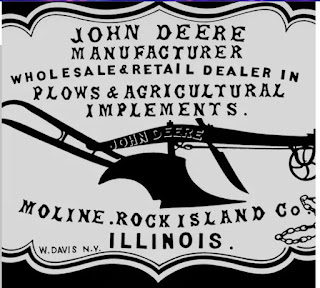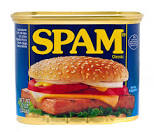No matter where in the world you live, and certainly in America, you’d recognize the “Nothing Runs Like A Deere” logo.
John Deere was born in 1804 in Vermont and moved to Illinois in 1836 and began manufacturing tools. He made pitchforks, shovels and plows. In those days, a product was not made until ordered, which was a very slow business model. By 1857, the company was manufacturing a variety of farm equipment; that year their sales reached 1120 implements per month. John Deere as an American business icon was off and running.
There are three main John Deere museums and a big selling item these days are the John Deere tractor toys.
SPAM is another iconic midwestern product. I always thought the letters stood for “Special Processed American Meat,” meat that was portable and sent to the troops in Europe during WWII.
SPAM is a brand of cooked pork introduced by Hormel in 1937. The origin of the name is not fully documented (so maybe I’m right?). SPAM was a lifesaver to U.S. soldiers in Europe because of the difficulty in having fresh meat for the soldiers on the front lines. Some 150,000,000 pounds of SPAM was purchased by the military before war’s end. Nowadays SPAM can be found on grocery shelves in 41 countries.
When was the last time you had fried SPAM? SPAM and eggs? A SPAM sandwich??



My grandfather Clyde Moody sold alot of wheat combines as sales manager of John Deere. His combine train of 96 cars on a Union Pacific Train was the largest fleet to come to Pacific Northwest in the 50’s. Proud of that John Deere heritage.
I grew up eating SPAM regularly because it was cheap, as was tuna in the 1950s and 60s. My mother served baked, broiled, fried, or right out of the can. I still enjoy a good fried-SPAM sandwich here and there! I knew a British couple who moved from Cornwall, England right after the war, and they really had a respect for SPAM as it provided much need nutrition during the war.